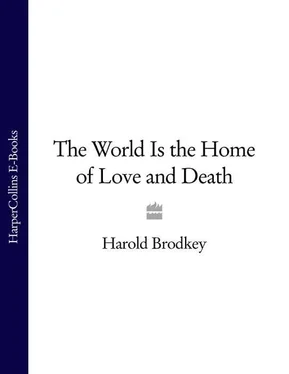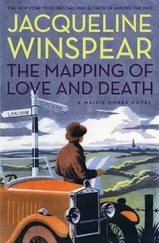I drew on my studies and I said, in order to be nice—a degree of clement attention: “If I combine original and primary … I get originar?. Do you know, does the originary real world matter? ”
He shrugged. No one at school ever gave away what he or she really felt (truly thought) to anyone, not really. Or the details of what he or she knew. Jass maybe wanted to play at serious talk or intelligent talk (the latter was the term used by somewhat better-bred kids).
The sport, the actual dimensions of the game here, has to do with power, real power in real sunlight. He wants to know which levers control fear and death and being amused in the world. He wanted to be like me but not completely like me, not a Jew—not haunted. This is a moment of my education that mattered, this knowing myself head-on from him and also from inside me, two ways at the same time, glaringly and with a blur so that I squinted.
His actual face in sunlight—and then the air and light at yet another intersection, at the high point of this enclave of houses, yet another perspectival drooping and curving crucifix lined with well-tended palaces—are part of a moment raw with limited and eccentric friendliness. It wasn’t perfect.
He said, “Do you believe in Heaven?”
“No. Do you?”
“Yes.”
“Why?”
“Why not?” Silence. He said, “I think Heaven is a great thought.”
“Are you serious?” It was good to be tactful if someone was serious about some pious matter or other.
“I’m serious,” he said with his eyelids half shut—that meant he was lying, but not entirely. So did him having his eyes wide, wide open and fixed directly on you, which he did next.
I asked, “Are you being sarcastic?”
“You’re the one who’s sarcastic.”
“You are! You’re being sarcastic!”
“You’re looking at yourself.”
“No, I’m not.” I started to laugh exasperatedly. He didn’t really know how to talk about a subject.
“What’s so funny?” he said.
“Your Adam’s apple is funny,” I said.
The present-tense eyes of the Protestant boy have a quality of well-practiced, frigidly hot attentiveness. His is the best attention I know at this point in school. He takes athletic, picayune, little breaths; he listens with no real movements of his eyes. They have a quality of male will—sort of. Focused, his eyes have, when they look at you, a mocking, American love letter thing—upper middle class, suburban Protestant, deadpan and intelligent.
In the hovering fatedness of any exchange, he says, “Kiss my ass.”
I say to him, “Boy, what crap you hand out.”
Did you ever feel betrothed in your youth to the heat of your present-tense reality, to the slippery and sliding focus on trying to talk —something like that? At yet another intersection, I had a sense of falling, of losing mental control, and my eyes blurred in the all-ways-dimensional now, the mind’s and the world’s great sea, the afternoon light. Real eyes are really real. It is impossible to think your way through moments spent with someone else.
In eight years, Jass will be killed in aerial combat in Korea, because his Sabre jet hadn’t yet been fitted with an afterburner—it was something of a scandal. He had sent me a postcard a month or so before: Dear Smart Guy: Guess what? Now I’m as smart as you …
What do you feel and think when you lose out in an aerial combat for real, when it is going to kill you—is it chagrin you feel? Do you have a sudden knowledge of yourself?
Jass breathes with athletic artfulness. His powers of physical improvisation were really considerable. “Shit,” he says. Then: “Shut up.”
“Sure,” I said, uncertain-eyed, but haughty. I know he likes to hurt people. He likes to play around.
He says, “The way you talk is stupid. Are you an honest person?” I can’t untangle the mockery, or figure out the seriousness.
Syllables in their purposes alight—like geese in a dimly lit yard with a masked whisper and rush, caught air, materialized, aerial— what-he-says —what he said never amounted to much. Interplay blows you this way and that. Meanings, obscene, nonsensical. Incomplete. I can’t handle him.
His rough, mocking gaze drags across my cheeks and eyes. He jumps on me again. We are arguing this way—about beliefs. We are studying affection. This was not particularly intelligent. “Let’s have a truce,” I say. The moment, the smells when he throws me down, the smells of dirt and of grass, have a hotly defeated, presence-of-another-will quality of defeat. Warm, rough, dirty …
He moves off me. And we stand up, and arrange our clothes, and he says: “You’re so fancy. Jews are always so fancy.”
“Cut it out,” I say.
“Scissors, scissors,” he says, nonsensically.
It is all nonsensical. No part of it was ever final enough to make sense.
When I was a child, at a certain moment, I woke in a different house made of wood. The slow movement of my eyelids, whispering and scraping, in tiny lurchings, tickled me. A sense of the disorder of the wicked vaudeville, the foul inventiveness of pain kept me uneasy, so that I was as if crouched. I have been ill.
It is almost light. The child is in pain; he lies half in, half out of an abominable breath-bag. The ill child watches in a feverishly illiterate way the slow oozing of the increase in light. Inside the delicacy of the uneducated stare, soft, opened, lightly fluttering, the pallor of consciousness, tampered with by pain, observes, anyway, the shimmer of the advance of the light.
After a while, cool and flighty, mindless cousinhood to sense breaks out—the first time in weeks, but then after a while it passes into spasms of sweaty apprehension, of waiting for the pain—of madness—in its criminal mysteriousness to return and blind me. This continues and doesn’t worsen: that it doesn’t worsen puts a weird and private jollity on his face. The recognized thump and rattle of a window frame, a dull, tremulous bass, and the rapid soprano twitterings of the glass panes in the mullions make the child twitch; then the noise takes on a weight of the familiar; it is beautiful with monotony; it persists.
Then pale-gray and yellow and pink fragments of light appear and slowly unbud, until I am embiered by rose after rose of unlikely light in a room filled with morning. The light is palpably warm. It warms and regulates my soul ungeometric with madness. The child gags and stutters in his breathing. My hand, a childish hand, burns and aches; it has a wind inside it, under it; it moves; it unfurls. The child stiffens in uneasy dominion over this phenomenon of his unfamiliar body. See, he has been ill a long while. The hesitations of thin, unstable, brown-papery, rustling minutes are a matter of steep consciousness for him. Mother-shoulders of air hold pinkish and silvery dabs of light aloft—prismatic dust—and the child persists in his truancy from grief. In the blurred flourish of mind in naming this light as light, as if it were the light in the other house, the child unmovingly romps, dizzied with illness, in a marvelous fluster of intellectual will. Consciousness does not dare call the roll of who is living and who is dead, because the disorganized child-life behind the blindly seeing spy holes of my face is so shaky.
My dead mother was fond of me. Which one of us is lost now? Lila, my adoptive mother, will someday say to me, I used to wonder what was wrong with you; you didn’t die when she did. The penalties are in place whether I die or not. Exhaustion in any act of extended will becomes panic and grief: Many, many times, I’ve thought something was wrong with you, you lived when you shouldn’t. No one thought you would live after she died. When she was alive, she kept you with her every minute; she said, “Why should he be sad? He likes to be with me. I’m strong, I can do two things at once. “ You wouldn’t let anyone touch you but her. No one could see her without seeing you hanging on her like a monkey. You was a pair, let me tell you: anything in you that’s good, it comes from her. If there’s a mind in you, you got it from her. It’s sad she died, but that’s how things are. What can you do about it, I ask you.
Читать дальше












